

We may earn revenue from the products available on this page and participate in affiliate programs. Learn More ›
Homes often make strange noises. They’re built of many different materials—glass, concrete, wood—that expand and contract at different rates, causing friction that results in those odd spooky sounds.
But still, “The most noise your house should make is a popping sound, like your knuckles cracking, and only once in a while,” says Bill Richardson, former president of the American Society of Home Inspectors and owner of Responsive Inspections in Bosque Farms, New Mexico.
If your home is making noises that make you jump in the night (or sounds that rival Metallica’s greatest hits), then it may be sending you signals that there’s a problem. We asked the experts to catalog some of the more worrisome pops, hisses, groans, creaks, and knocks and tell us what they mean and how they can be remedied. Read on to find out how 11 spooky house sounds are diagnosed and how each can be resolved.
1. What is that clanking sound when we turn on the heat?
The problem: When most homeowners first turn on their heating system in the fall, they’ll often hear a little moaning and groaning as the heating system expands and rubs against the frame of the house, says Mike Kuhn, the New Jersey owner of a HouseMaster inspection service and coauthor of The Pocket Idiot’s Guide to Home Inspections.
With a baseboard hot-water system, you can also expect “normal clinking and knocking,” says Kuhn. The circulator pump or pumps to the system, however, “should be silent when they run,” says Kuhn. If you hear knocking or clanking, typically located at the boiler itself, it might be a sign of impending failure of the circulator pump, he says.
The solution: Get a repairman out to check on it, pronto.
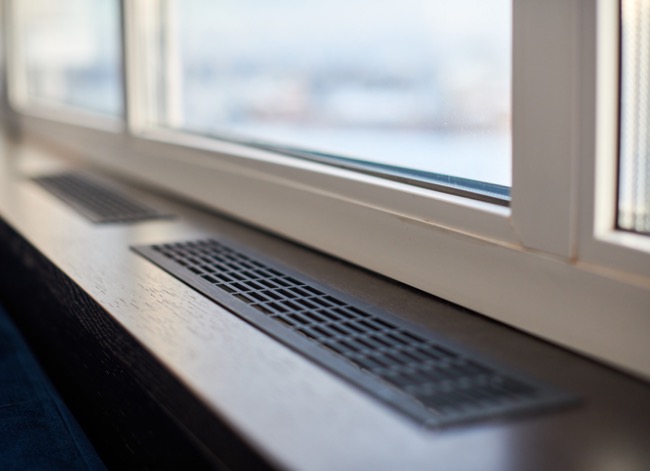
2. There’s a strange and spooky scratching sound coming from behind the walls.
The problem: If you hear strange noises like scratching and possibly chittering coming from places where no human or beloved pet lives in the house, you probably don’t have ghosts. You may have mice, squirrels, raccoons, or even bats sharing your quarters, says Richardson. “Any kind of wild critter could be up in the attic,” he says.
And these freeloaders aren’t just a nuisance; bats can carry deadly rabies. In the Southwest, the droppings of mice can spread hantavirus. Some animals will tear up insulation to nest, or chew through siding or even electrical wires, causing fires.
The solution: As soon as you suspect an intruder, get on it: Set traps or a bat repelling system. (Call in a pro if the animal is stubborn or large.) Finally, prevent the problem from reoccurring by sealing up the entrances to your house with steel wool, metal sheeting, caulk, and/or hardware cloth.
To keep raccoons away, put garbage in sealed, secured metal cans that can’t be tipped. Bring pet food inside. After pests have been removed, make sure vents and chimneys are securely covered with a grille or mesh chimney cap so those spaces can still breathe.
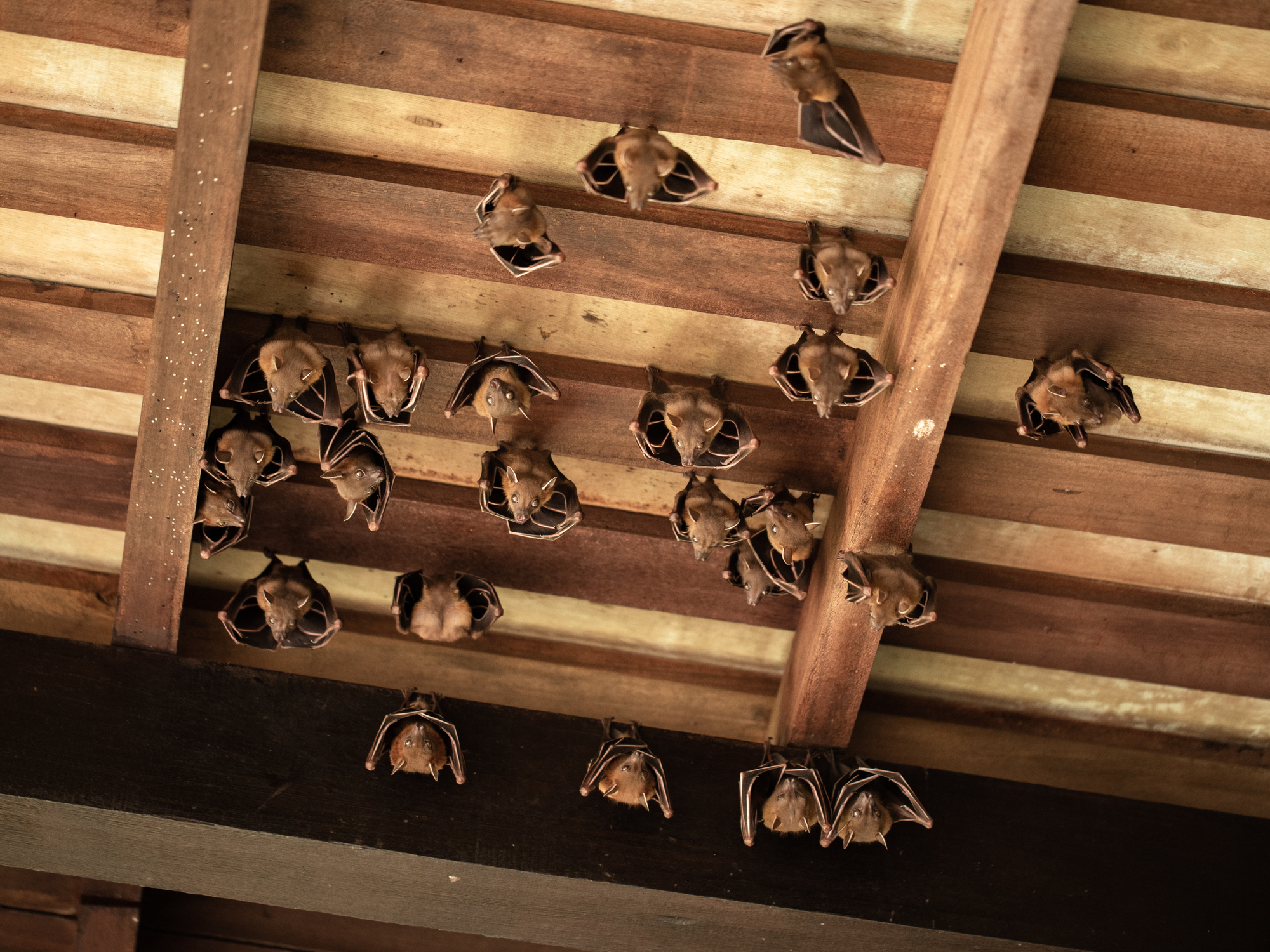
3. There’s no one else in the house, but I can still hear running water. How can that be?
The problem: “You definitely don’t want to hear water running if nobody’s using anything,” says Richardson. The sound could indicate many things—a busted pipe in a wall, under the floor, or even in the irrigation system.
If you hear running water when you shouldn’t, “Shut the main off and see if the noise goes away. If it does, you’ve got a leak somewhere,” says Richardson, and a plumbing problem in need of fixing.
The solution: Unless you’re really handy and ready to do surgery on your home, call in a plumber.
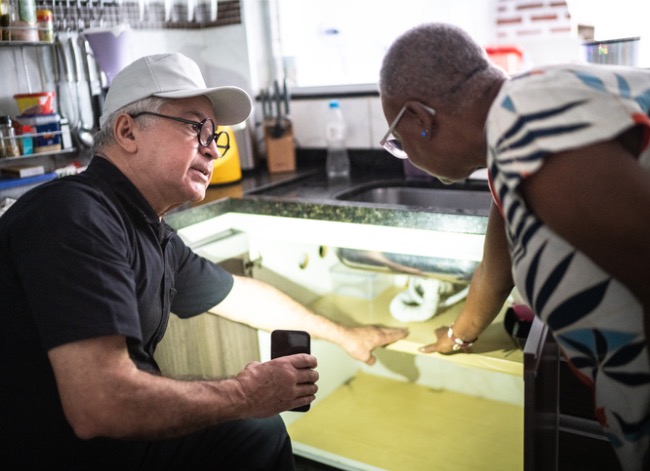
4. I hear a bubbling (or cracking) sound coming from the water heater. Is that normal?
The problem: A gas-fired hot water heater works pretty much like boiling a pot of water: A fire is lit and the water inside is heated until it’s ready for use. “A lot of sediment builds up at the bottom of a hot water tank, and that sediment works like an insulator,” forcing the burner to work harder, Kuhn says. The strange noise you hear is the bubbling sediment—and a sign that the tank is probably experiencing fatigue and may be facing premature failure, says Kuhn.
The solution: Ideally, you should flush out your hot water tank every few months, using the drain valve near the bottom of the floor. “However, nobody does it,” says Kuhn, because it can be a pain to do.
If your water heater is already making these noises, draining it might help. “It could [work] a little bit longer, it could go a lot longer,” but the damage is probably done, says Kuhn.
5. My furnace is making a whistling (sucking) sound that it’s never made before. Is it going to need replacement?
The problem: “What that can connote is that your filter hasn’t been changed,” says Richardson, “and your furnace is trying to pull in air from around it.” That’s not good, he says; the furnace is working too hard. “What it will do is start sucking exhaust gases from the furnace into the house.”
The solution: Install clean filters regularly, “anywhere from 3 months to monthly, depending on atmospheric conditions,” says Richardson. Consider lessening the impact on the planet by trying cut-to-fit filters that can be cleaned and reused.

6. I hear a switch turning on and off regularly but can’t seem to isolate where it’s coming from.
The problem: If you’ve got a well for your water, you’ve got a well pump that has a switch—either in the house or above the well in your yard. “If you are sitting in your house and hearing the pump switch click on and off, you may have a problem,” says Kuhn.
The pump pulls water from the well and into a holding tank, where it’s stored for your use. If you’re hearing it when you, say, turn on the faucet, something may be wrong. The pump “should not operate every time there is a call for water. The wear and tear would cause the pump to fail prematurely,” Kuhn says. It’s likely that you have a leak in the system. “The leak is either going to be in the well equipment itself, or in a fixture”— a leaky toilet, for example— that is causing the holding tank to drain, says Kuhn.
The solution: Check your fixtures for leaks. If there’s a small leak, try a quick repair with an epoxy like J-B Weld’s WaterWeld. If it’s a bigger issue, call a plumber familiar with well systems.
7. What’s that hissing sound?
The problem: Hissing sounds can happen for a variety of reasons, and some can be spookier than others. If the hissing sound happens when the HVAC system is running, there may be a leak somewhere in the system. Leaks can happen at the compressor, in radiators, or inside air ducts.
However, if your home uses natural gas, the strange noise that sounds like hissing could indicate a bigger problem like a gas leak, says Richardson. Sometimes you can hear a hissing outside at the gas meter or at a home’s outdoor gas light post—places where the line could have corroded, he says. “You should be able to smell it, but you never know.”
The solution: If you smell gas around the gas main, don’t mess with the gas shutoff unless you absolutely know what you’re doing, because any mishandling or spark could make things much worse, says Richardson. If you hear the noise and smell the gas, immediately evacuate the house and call the gas company.
To fix air leaks in an HVAC system, check the valves on the different components for obvious leaks and call in an HVAC professional to find bigger issues and make sure the system is in good working order.
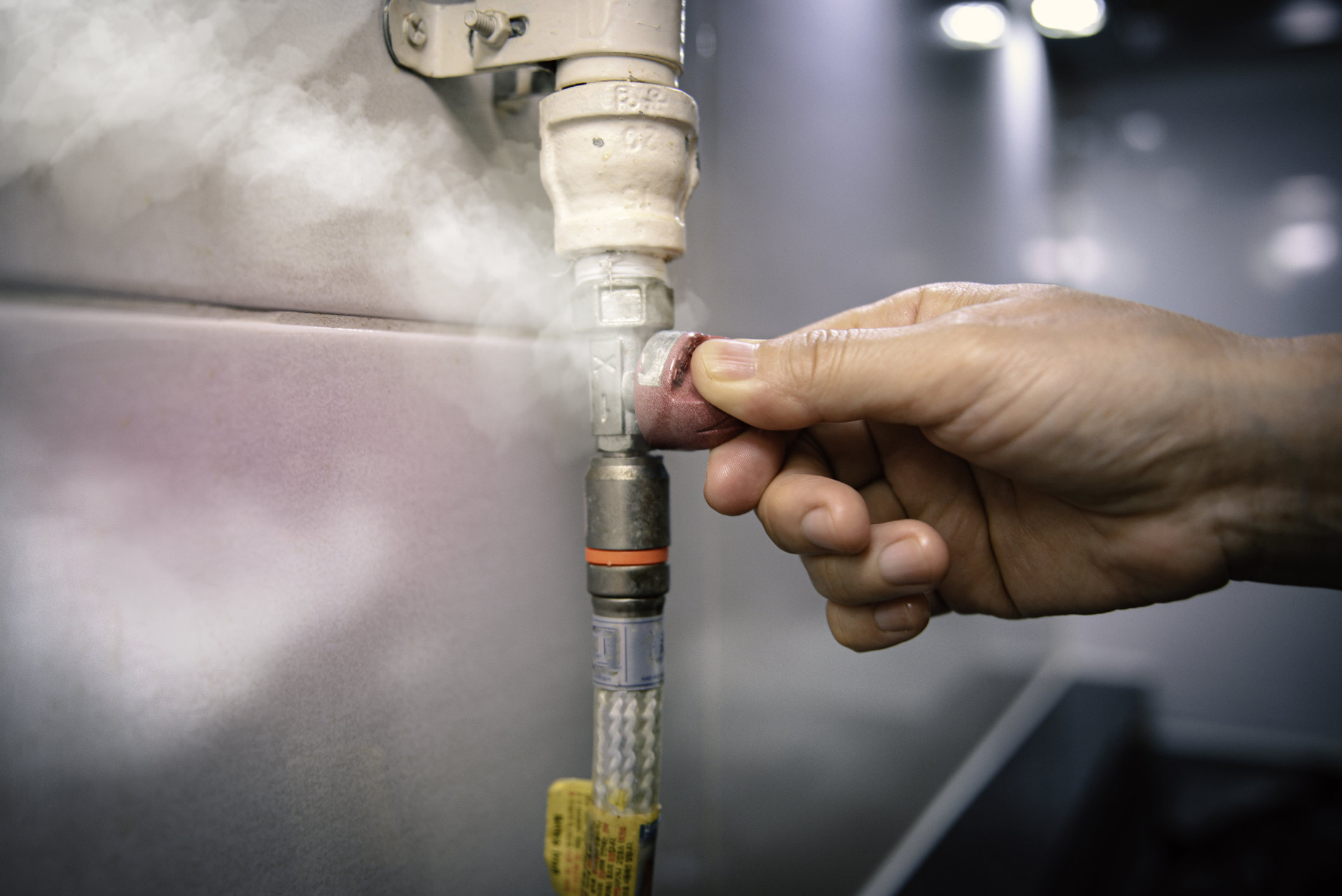
8. Why is the floor squeaking and creaking?
The problem: A creaking and squeaking wood floor is a typical example of a common house noise, but it shouldn’t always be quickly dismissed. While some of these squeaking floor noises are just wood boards rubbing against each other as temperatures change and the house settles, there are other reasons worth investigating. One big concern is termites. If there’s also a low point in the floor, it’s an even bigger sign that termites might be munching away at the wood structure.
The solution: Fixing a squeaky floor takes a bit of detective work to diagnose the cause. If it’s part of a subfloor that has settled or a nail that is rubbing against a wood board, those issues can be fixed with wood shims or a few extra fasteners to secure the connections. If it’s termites, it’s time to call in professionals to assess the damage and make sure the structure is still sound.
9. I hear banging and tapping when I flush the toilet or use the dishwasher. What’s happening?
The problem: Plumbing pipes can create a variety of spooky noises to alert homeowners that something’s up. Banging noises heard after running a sink or flushing the toilet may be due to water hammer, which is pressure inside the pipes caused by air or excess water.
Tapping noises heard when a dishwasher is running can be caused from a clog inside the system. Its drain hose sometimes can get clogged with debris, making it tough for the water to flow, which can cause that tapping noise.
The solution: To get rid of the air pressure causing banging noises in the pipes, it’s helpful to drain the system. This will help eliminate the pocket of air, so it can run smoothly. For the dishwasher, it’s time to clean the drain hose, which is usually a job for an experienced DIYer or professional plumber.
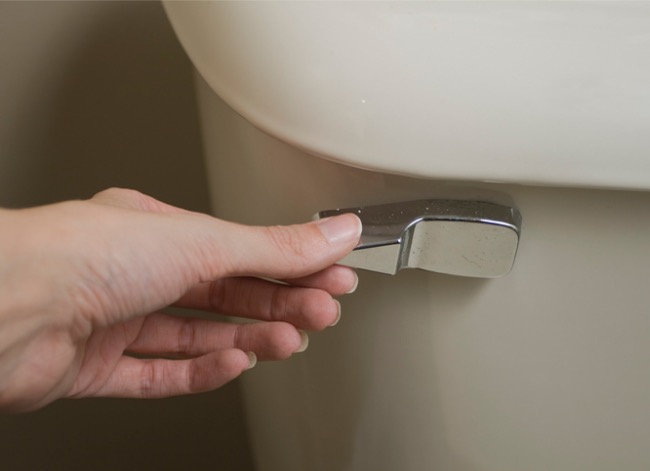
10. It sounds like my washer is haunted! There’s a loud thumping noise that sounds like it’s full of shoes. How can I fix it?
The problem: If it sounds like there’s something in the washing machine banging around and trying to escape, it’s probably due to an unbalanced load or an issue with the balance ring. If it’s an unbalanced load, you won’t hear the thumping every time you wash clothes. An unbalanced load usually happens with heavier and thicker items, and it can be fixed by just redistributing the items in the washer.
If the thumping and banging happen every time the washer runs, it could be the balance ring. A washer’s balance ring helps keep the washer in balance when washing a load of laundry. If the thumping isn’t fixed, then the washer could really go out of balance and cause a bigger problem with the electrical system of the machine.
The solution: Before attempting to investigate or do anything to fix a banging washer, make sure it is unplugged and the water to the machine is off. When a balance ring is depleted of fluid, the washer tub can shake. This is usually a job for a pro to fix.
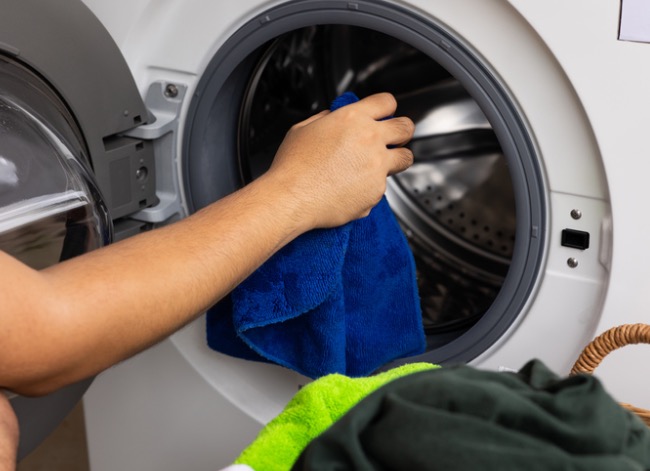
11. My whistling windows keep me up at night! How can I get them to stop?
The problem: Worn weatherstripping or windows that aren’t fitting quite right due to temperature fluctuations and age can cause a whistling sound, heard more in colder weather when it’s quiet at night. While it’s annoying, it’s also an energy waster and could lead to bigger problems.
If the windows are also rattling, then there’s usually something not fitting quite right and bumping into another part of the window system. Either of these issues could eventually lead to cracks in the glass.
The solution: Figuring out where the leaks are happening can be as easy as feeling around the window for cold air and looking at the weatherstripping around the window. If there are any cracks or gaps in the seal around a window, replace the weatherstripping. It’s a fairly easy DIY project that most homeowners can tackle.
